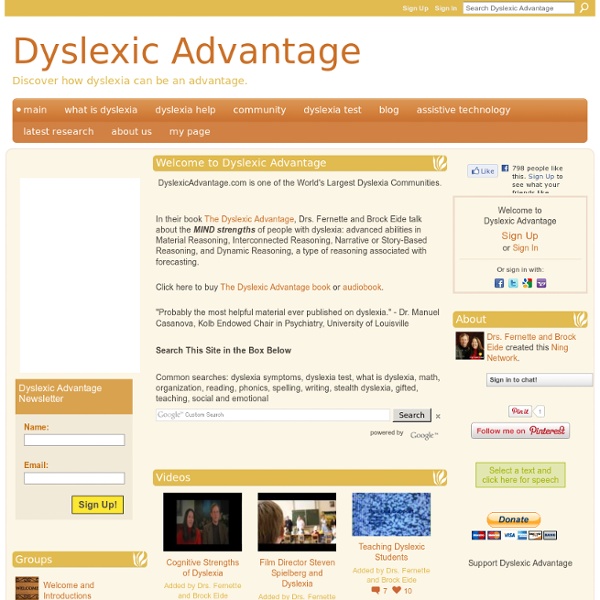



The International Dyslexia Association Promoting literacy throug Why Copying from a Board is Ineffective for Dyslexics Saturday, May 9, 2015 Why Copying from a Board is Ineffective for Dyslexics Having to take notes by copying from a board or projection while a teacher is lecturing is challenging for any learner, because it requires students to multitask and constantly shift modes of learning. How Has Technology Impacted Note-taking? Before the rise of educational technology, students used to copy while the teacher wrote on the blackboard, however, with the use of devices such as the Smartboard and software like PowerPoint, the words just magically appear. What are the Challenges Students with Dyslexia Face While Copying from the Board? Many students with dyslexia find difficult to reproduce words accurately and, worst of all, many have trouble finding their place on the board after they have looked down at their notebook. What Does the Resent Research Say? Dr. What Can Be Done to Remedy This Problem? What is most important is for teachers to slow down. · Teach note-taking strategies. Dr.
Phonemic Awareness and Dyslexia with Susan Barton Barn | SPREADTHESIGN Teckenspråk hjälper barnen med bokstäverna Två grundskolor i Sverige har på försök under läsåret lärt sina elever det svenska teckenspråkets handalfabet till sina yngsta elever. Målet är och se om handalfabetet är till hjälp när eleverna ska lära sig läsa och skriva. Foto: Dennis Lennartsson Projektet som leds från Örebro universitet av Karin Allard i samarbete med Europeiskt Teckenspråkscenter av Thomas Lydell-Olsen. - ”Det är ett jättebra hjälpmedel som ger trygghet och stöd vid inlärningen. ”De grupper som jämförts med denna, som ingår i projektet, har haft ett lägre värde och det har tagit längre tid att uppnå samma resultat som denna grupp gjort. Thomas Lydell-Olsen fick idén till studien när han träffat en lärarkollega i Portugal som byt tjänst. ” Jag frågade Rosa-Maria hur det går på hennes dövskola i Porto. Var kan man lära sig handalfabetet idag? Perspektiv på läs- och skrivlärande – samspelet mellan grafiska representationer och handalfabetsbokstavering. www.jela-design.se
Conference on Dyslexia and Talent | Dyslexic Advantage Blog What You May Not Know About Dyslexia…. Like this: Like Loading... Related Scientific American on the Advantages of Dyslexia Great to see Scientific American covering the advantages of dyslexia...Excerpt: "Dyslexia is often called a “learning disability.” In "Dyslexic Advantages" Alan Alda Talks with the Eides About Dyslexia What We Know About Dyslexic Minds - Alan Alda talks with Drs. Yale Center For Dyslexia & Creativity Indications of Dyslexia- About Dyslexia- the British Dyslexia Association If a child has several of these indications, further investigation should be made. The child may be dyslexic, or there may be other reasons. This is not a checklist. 1. There are many persisting factors in dyslexia, which can appear from an early age. These include: Obvious 'good' and 'bad' days, for no apparent reason, Confusion between directional words, e.g. up/down, in/out, Difficulty with sequence, e.g. coloured bead sequence, later with days of the week or numbers, A family history of dyslexia/reading difficulties. 2. Has persistent jumbled phrases, e.g. Pre-school non-language indicators. May have walked early but did not crawl - was a 'bottom shuffler' or 'tummy wriggler'. 3. Has particular difficulty with reading and spelling. Primary school age non-language indicators: Has difficulty with tying shoe laces, tie, dressing. 4. As for primary schools, plus: Still reads inaccurately. Aged 12 or over non-language indicators: Has poor confidence and self-esteem. 5.
The International Dyslexia Association Promoting literacy through research, education and advocacy Information on Interventions and Instructions IDA Position Statement: Dyslexia Treatment Programs The IDA Board of Directors and IDA Branches are frequently asked to endorse or review treatment programs for the prevention and remediation of dyslexia and other reading-related problems. Although IDA does not publish formal reviews of programs, or endorse a specific approach, we do have an IDA Position Statement about treatment of dyslexia and direct you to the websites below for additional information. Importantly, IDA cautions parents who are looking for instructors, clinicians, schools, and programs to be very thorough in their review of programs and services that claim to treat dyslexia or “cure” dyslexia. Knowledge and Practice Standards for Teachers of Reading The International Dyslexia Association is pleased to announce a major new document entitled Knowledge and Practice Standards for Teachers of Reading. Click here to view the Knowledge and Practice Standards for Teachers of Reading
Start Dudes with Dyslexia - Dudes with Dyslexia!! Literacy Lowdown- Word Study Activities Maureen Hayes, PreK-6 Humanities Supervisor This Month's Focus: Meaningful Word Study Activities In my January/February Smore, I shared information for supporting word study and phonics development in your classroom. This Smore will extent that and focus on making activities, lessons, and home practice meaningful for your students each week. When we know better, we do better... Word Study is about understanding patterns in words, and being able to apply these patterns to spell and read unknown words. Even if a student does manage to memorize the spelling of words to be successful on an assessment, the research shows no connection to long-term memory and carry-over into student writing. Asking a student to write a word as practice is only useful if students attach meaning to what they’re writing. For that reason, the following activities should NOT be part of your repertoire for word study practice or instruction. 1. 2. 3. 4. 5. source: 1. 2. 1.